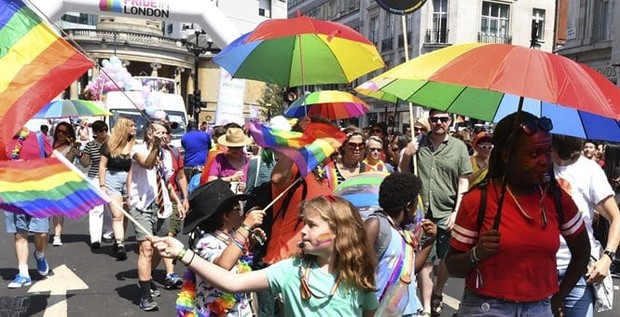
The activist left has made it their quest to introduce sex to children at younger and younger ages both in an official and unofficial capacity.
In schools, they started with pushing the importance of sex education with the age of the student going down over time and now we’ve arrived at activists wanting to have kids taken from parents if the parents deny any sexual proclivities in their young children at all.
The thinking is, according to LGBT activists, that the sooner you introduce sex and sexuality to a child then the more accepting and kind he’ll be to people who are different in the future. The problem is that it’s no longer about acceptance or tolerance, it’s about roping children in.
According to HuffPo, a now-deleted Twitter account had asked Pride parade-goers to leave their kinds and nudity at home for the sake of the children. This apparently upset many members of the LGBT community who then mobbed the account into deletion.
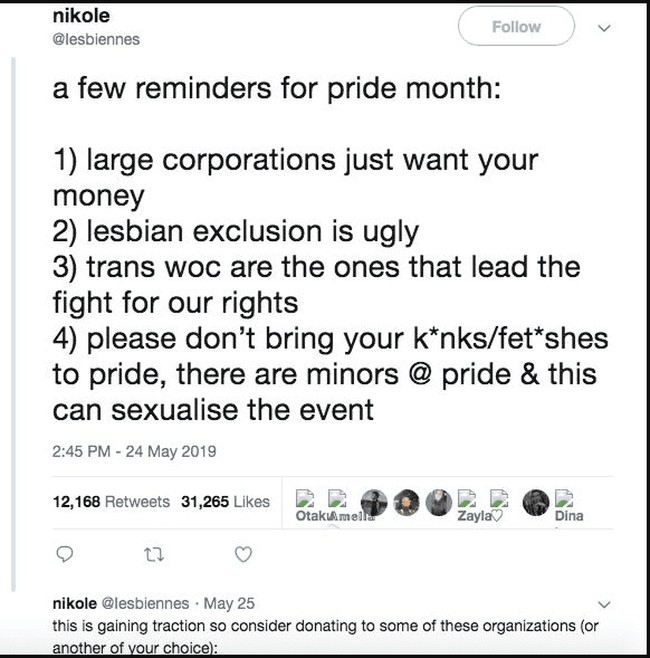
It did spark up a conversation and according to some activists, seeing that kind of thing is good for kids.
“First of all, nobody likes nakedness more than children,” said educator S. Bear Bergman.
“On the list of things that I don’t want my children ever to be exposed to are: Compulsory heterosexuality, demonstrations of sexism, demonstrations of racism, demonstrations of ablism, violence. These are all way higher on the list than some homosexual’s tuchus.”
According to HuffPo, one “semi-retired sex therapist,” Pega Ren, said that children seeing these kinks would be beneficial as it would promote the idea of “diversity and inclusion”:
Putting on her sex therapist hat, Ren emphasized that Pride, from kink to nakedness, is an excellent opportunity for parents to do unbiased sex education. Bergman also pointed out that many children don’t even interpret most of what they’re seeing in a Pride parade as sexual, but rather as dress-up or fun.
“Children benefit from seeing people loving one another, from seeing diversity and inclusion. Children suffer from seeing violence and fear, hatred and divisiveness,” Ren said.
“We found and built our tribe at these gatherings.”
Children can be taught about diversity and inclusion without being subjected to what adds up to being live strip shows and grotesque displays of sexuality. Still, the point of this “education” is to bring them into the fold, not just teach them that some people are different and prefer different things than others.
A solid example here is the “drag kid” currently in the spotlight known as “Desmond is Amazing.” The 11-year-old boy is being put in front of cameras everywhere and getting endorsement deals with corporations over being a representation of what activists are calling “the future.” This is the same kid who was recently celebrated by activists for being at a gay bar at 2 a.m., dancing in drag on a stage while money was thrown at him.
It’s not contained at just one child, however. On several occasions, we’ve seen small children be placed beside grown naked men for photo opportunities.
Anyone not ferociously fighting to stop this is saying through his inaction that he despises children, and is complicit in child abuse, starting with you in the #LGBT movement. pic.twitter.com/6F7T2gVXAj
— StephenHerreid (@StephenHerreid) June 20, 2019
https://twitter.com/roughly_speakin/status/1083520556174110720
The risks of exposing children to overt displays of sexualization in media are bad enough. According to Dr. Carolyn Ross, a disorder specialist, exposing children to sex and sexuality early puts the kids at a very high risk of developing sex disorders later in life:
The earlier a child is exposed to sexual content and begins having sex, the likelier they are to engage in high-risk sex. Research shows that children who have sex by age 13 are more likely to have multiple sexual partners, engage in frequent intercourse, have unprotected sex and use drugs or alcohol before sex. In a study by researcher Dr. Jennings Bryant, more than 66 percent of boys and 40 percent of girls reported wanting to try some of the sexual behaviors they saw in the media (and by high school, many had done so), which increases the risk of sexually transmitted diseases and unwanted pregnancies.
Not every child who is exposed to sexual content will struggle with a mental health disorder, but research shows that early exposure to pornography is a risk factor for sex addictionsand other intimacy disorders. In one study of 932 sex addicts, 90 percent of men and 77 percent of women reported that pornography was a factor in their addiction. With the widespread availability of explicit material on the Internet, these problems are becoming more prevalent and are surfacing at younger ages.
Now we’re being encouraged to put children right next to it, not just see it on the screen?
We’re told constantly that we should introduce our children to things at early ages with buzzwords like “diversity” and “inclusion” thrown at us left and right, but the line has been reached and then vaulted over. There should be a limit to tolerance when it comes to exposing our children to sexual practices, and getting them involved in it is a mile too far.
I want to be clear. Activists are currently asking that we promoting the idea that we not just introduce our children to sexualization, but be sexualized through various means.
This has to stop.
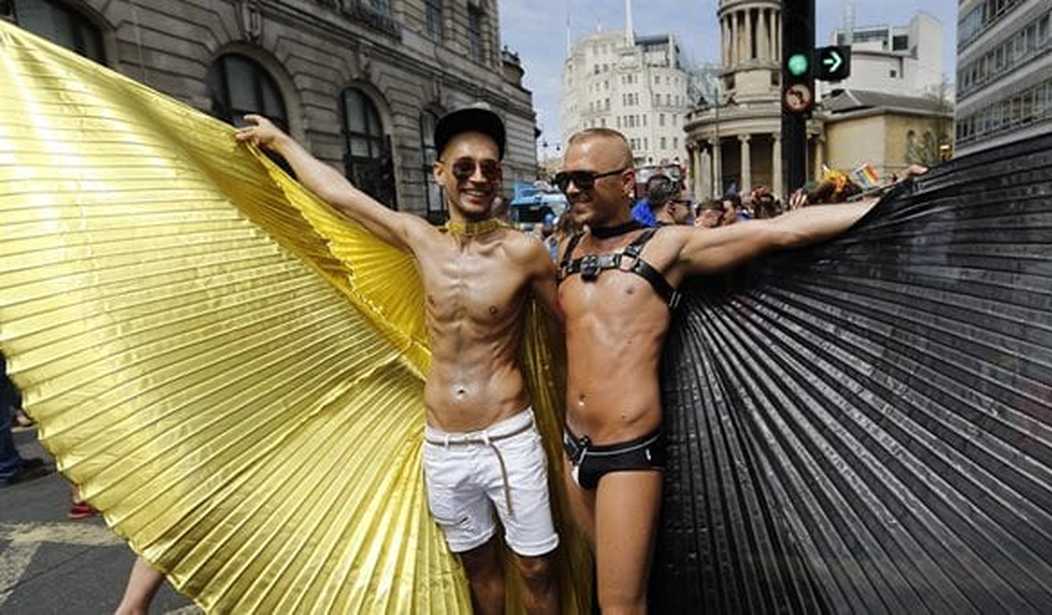


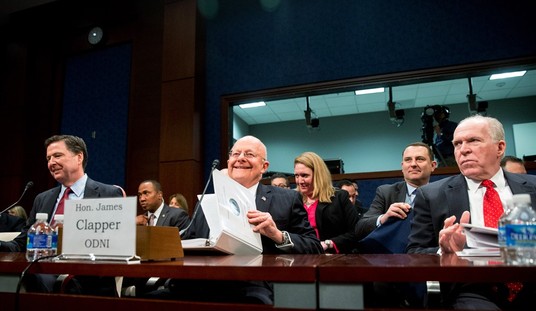
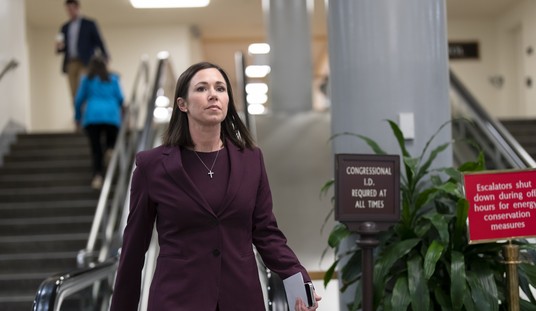
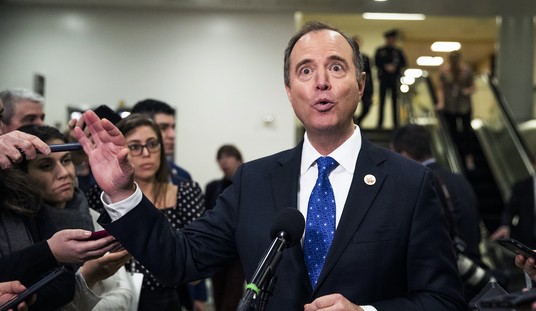








Join the conversation as a VIP Member